Gabon is a country worth considering when choosing a travel destination that remains largely untouched and prioritizes conservation. Located in Central Africa’s west, Gabon offers breathtaking eco-tourism sites, vast national parks, and rich biodiversity. With the convenient system now available, travelers can easily apply for Gabon eVisa online, making trip planning more efficient than ever. This makes it simpler to explore Gabon’s eco-friendly destinations, discover its diverse wildlife, and enjoy its natural beauty without unnecessary hassle.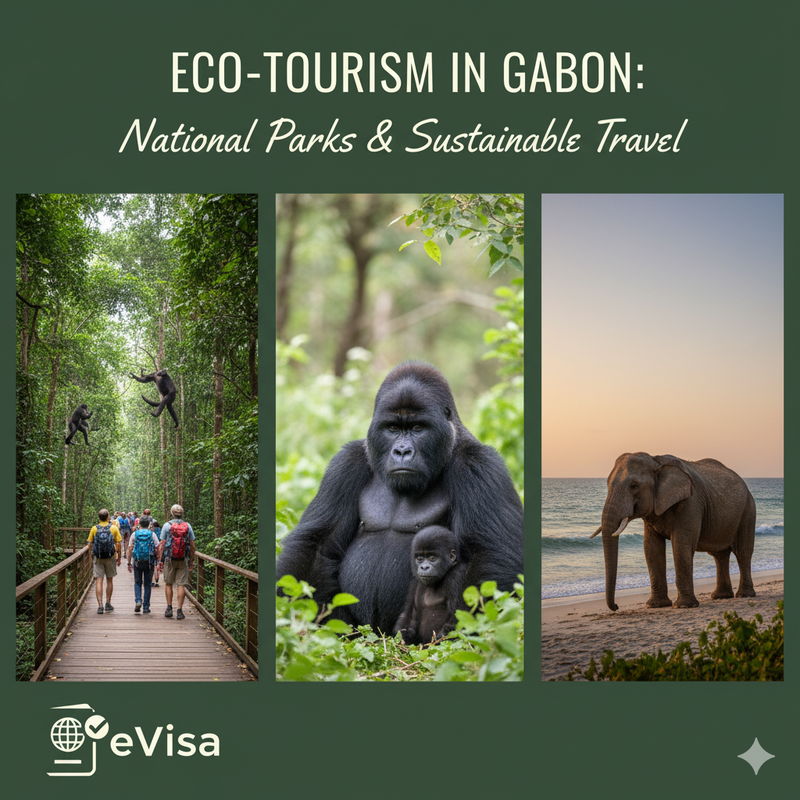
Why Gabon Stands Out for Eco-Tourism
- Biodiversity at Its Best: Thousands of plant and animal species are found in Gabon with some being rare or endangered. The rainforests of the country are the home to forest elephants, gorillas, chimpanzees and hundreds of species of birds. These are some of the most intact tropical forests that remain in Africa.
- Protected Lands: The national parks, reserves and the safeguarded areas occupy close to 11 percent of the total land area of Gabon. This undertaking makes sure that the future generations and the wildlife are not harmed by the environment.
- Government and Community Collaboration: The government of Gabon works actively with conservation organizations and the local communities in order to enhance sustainable tourism. The collaboration develops environmental friendly tourism models, which offer economic gains to the locals.
- Authentic Nature Experiences: In contrast to other overcrowded safari destinations, Gabon offers a low-volume tourism experience, which is intimate. You are also able to visit large wilderness spots with fewer people to share with, and you have more opportunities of seeing rare wildlife.
- Rich Cultural Heritage: The eco-tourism of Gabon also lays much emphasis on the culture of the indigenous people who have lived in harmony with nature over centuries. Tourists are able to interact with the locals and understand their sustainable culture.
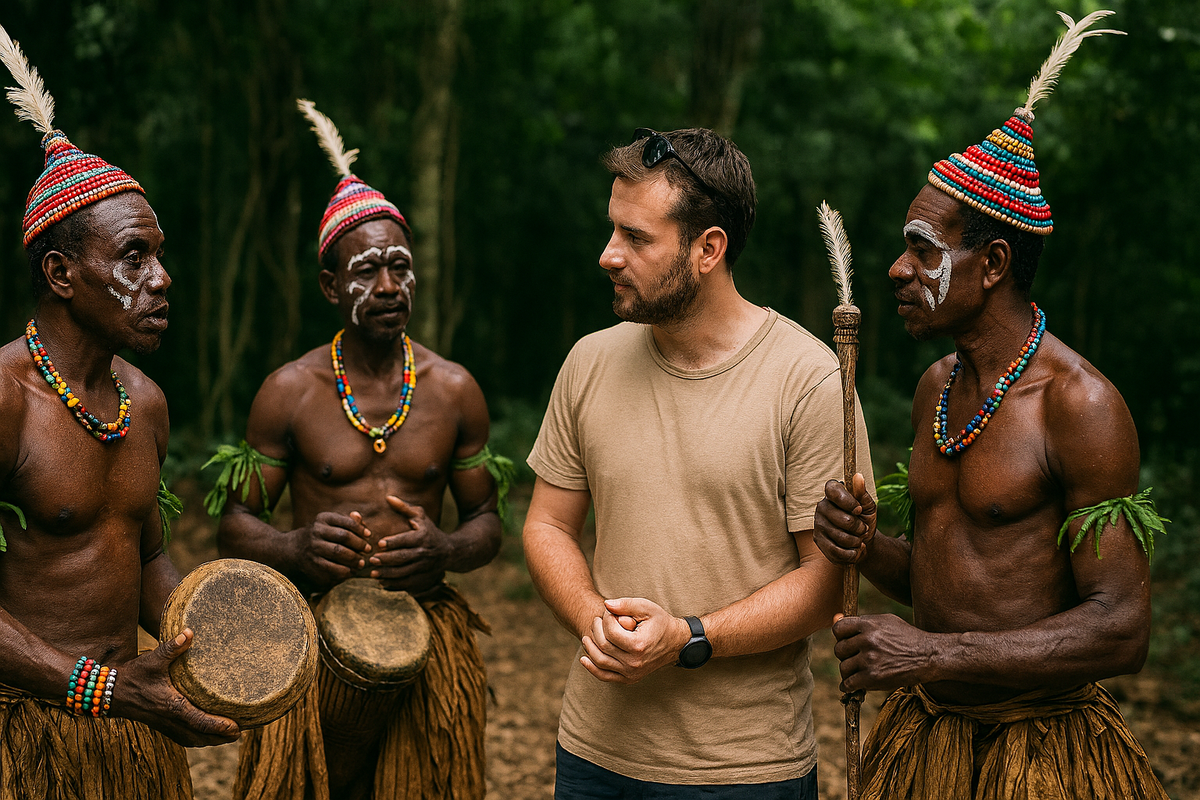
Discover Gabon’s National Parks: Nature’s Untouched Gems
Loango National Park: The Wild Coastline
- Known for its spectacular combination of savannah, forest, lagoon, and beach habitats.
- The park is famous worldwide for its “surfing hippos,” hippos that enter the ocean and surf the waves, a truly rare sight.
- Wildlife sightings can include elephants, buffalo, gorillas, and numerous dolphin species.
- Loango is ideal for wildlife safaris, kayaking, snorkeling, and beach camping.
- The park also offers excellent birdwatching, with dozens of rare coastal bird species.
- Best time to visit is during the dry season from July to October.

Lope National Park: The Crossroads of Forest and Savannah
- A UNESCO World Heritage Site for its outstanding natural and archaeological significance.
- It features a beautiful mosaic of forest and savannah that supports large populations of forest elephants, mandrills, buffalos, and chimpanzees.
- Visitors can explore ancient rock art dating back thousands of years.
- This park is excellent for hiking, wildlife tracking, and cultural visits to nearby villages.
- The dry season from June to September provides the best conditions for exploration.
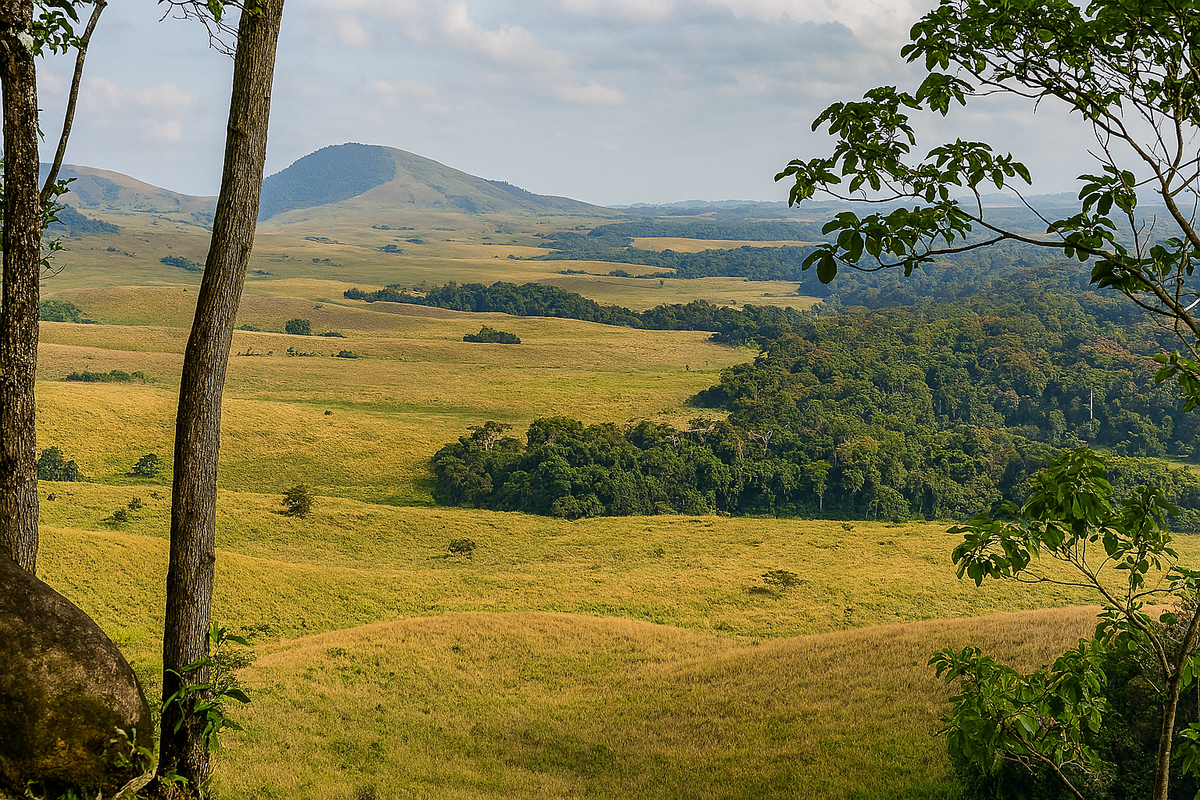
Ivindo National Park: Waterfalls and Pristine Jungle
- Home to the breathtaking Kongou and Mingouli waterfalls, some of the largest and most powerful in Central Africa.
- The park’s rainforest remains virtually untouched, offering an immersive jungle experience.
- Wildlife includes forest gorillas, chimpanzees, and various amphibians and reptiles.
- Activities include guided jungle trekking, waterfall hikes, and canoe trips on the Ivindo River.
- Visit between May and September for the best trekking conditions.
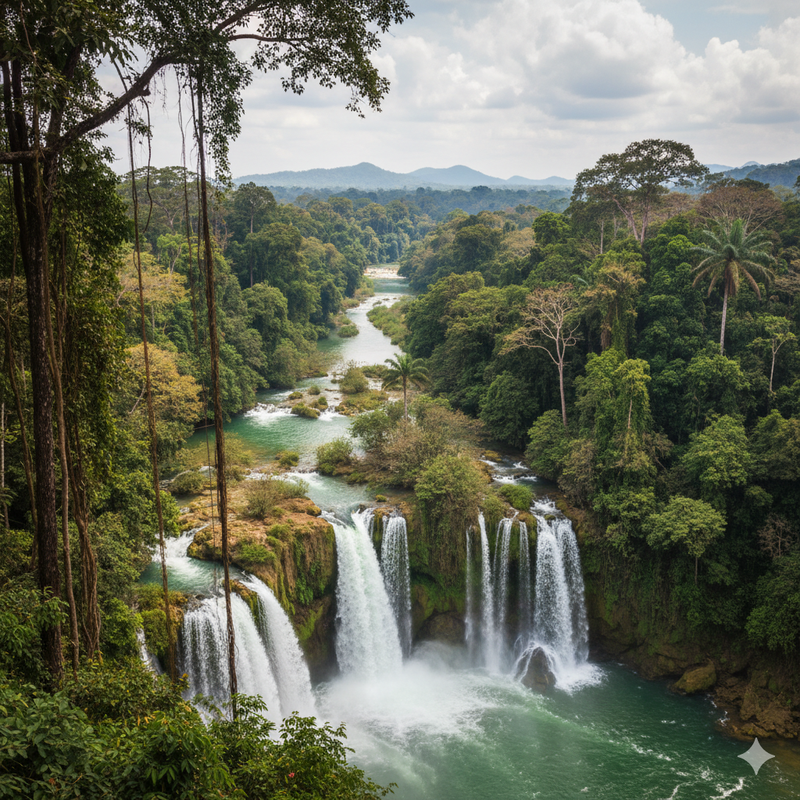
Mayumba National Park: Protecting the Sea Turtles
- This coastal park preserves important nesting beaches for endangered leatherback, green, and hawksbill turtles.
- Its marine environment supports dolphins, migrating whales, and other ocean wildlife.
- Visitors can join guided turtle-watching tours, go kayaking, or snorkel in crystal-clear waters.
- The peak nesting season from October to March is a highlight for wildlife lovers.
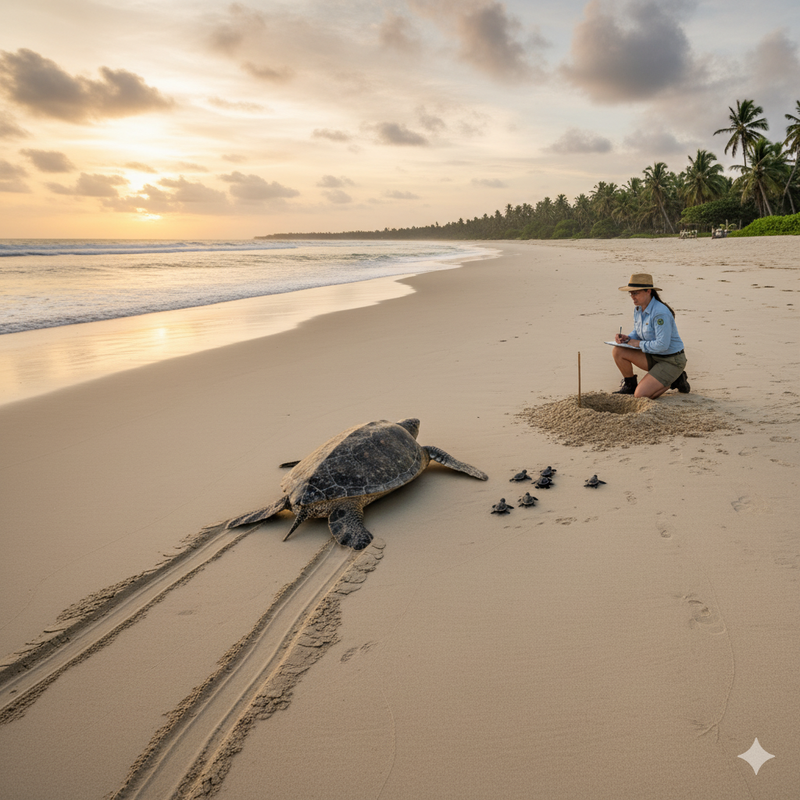
How Gabon’s eVisa Makes Travel Hassle-Free
Gabon eVisa makes travel hassle-free by streamlining the application process online. With quick approval, no need for embassy visits, and a simple interface, travelers can easily plan their trip. The eVisa ensures a smooth and efficient entry to explore Gabon’s stunning attractions.
- The Gabon eVisa system allows travelers to apply for a visa online quickly and conveniently without visiting an embassy.

- The process is straightforward: complete the application, upload the required documents, and receive the visa electronically.

- Approval usually takes Gabon eVisa Processing Time within 3 to 5 business days, making last-minute travel plans possible.

- Different visa categories are available, including tourist, business, and transit options.

- You can print the visa or keep a digital copy on your phone for presentation at entry points.

- The eVisa system makes crossing Gabon’s borders smoother, encouraging more travelers to visit and support sustainable tourism efforts.

Practical Sustainable Travel Tips for Your Gabon Trip
- Stay at Eco-Lodges: Choose accommodations that prioritize renewable energy, waste reduction, and water conservation.
- Respect Wildlife: Observe animals from a safe distance and never feed or disturb them.
- Reduce Plastic Use: Bring refillable water bottles and reusable bags to cut down on plastic waste.
- Support Local Communities: Use local guides, eat locally sourced food, and purchase handmade crafts to contribute directly to local economies.
- Learn Local Customs: Show respect for cultural traditions by asking permission before photographing people or sacred sites.
- Offset Your Carbon Footprint: Consider donating to local conservation projects that plant trees or protect habitats.
- Travel Slowly: Spend more time in fewer places to reduce your overall impact and deepen your connection to the environment.
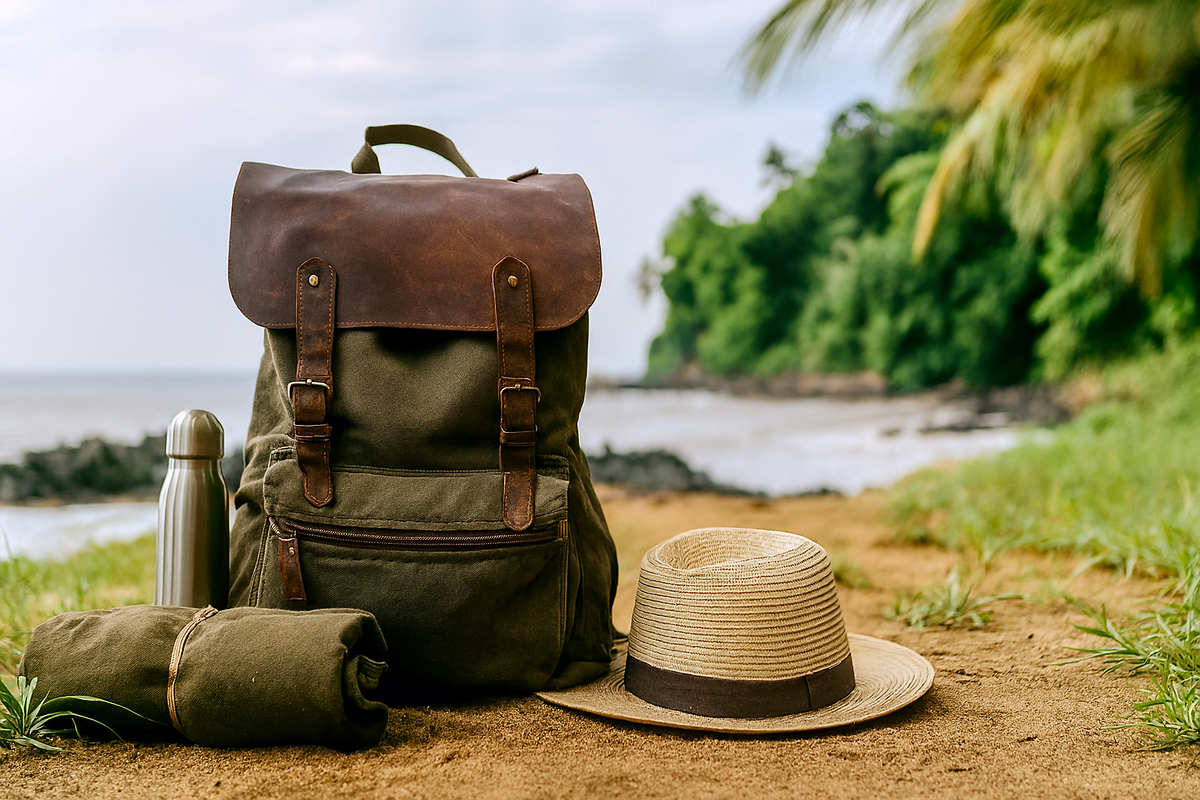
The Positive Impact of Eco-Tourism in Gabon
- Tourism fees and donations help fund anti-poaching patrols, park maintenance, and wildlife monitoring.
- Visitors become informed about environmental challenges and contribute to global conservation awareness.
- Local communities gain employment opportunities and economic incentives to protect natural resources.
- Protecting Gabon’s forests supports global efforts against climate change by preserving carbon sinks.
- Eco-tourism funds scientific research that improves knowledge of Gabon’s unique ecosystems and wildlife.
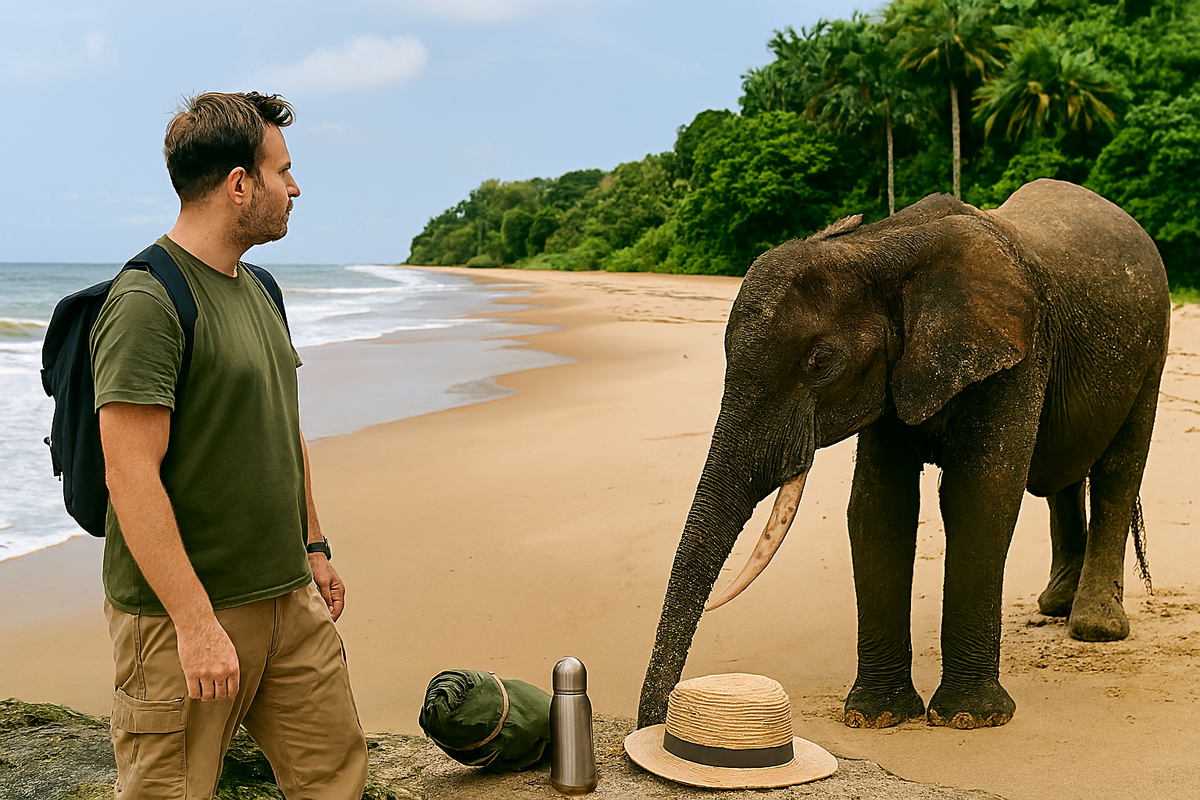
Additional Tips for Traveling in Gabon
- The dry season (June to September) is the best time to visit for wildlife viewing and comfortable trekking.
- To reach remote parks, use domestic flights, 4x4 vehicles, or river boats.
- Vaccination against yellow fever is mandatory. Take anti-malarial medication and use insect repellent.
- French is the official language. English is less common but guides in tourist areas often speak it.
- Carry local currency (Central African CFA franc) as ATMs are rare outside major cities.
- Internet connectivity can be limited in remote areas — prepare to disconnect and enjoy nature.

Conclusion: Gabon Awaits the Responsible Traveler
Gabon is a unique chance to enjoy the natural beauty of Africa and be sustainable and conserve it. Whether it is wonderful wildlife viewing at Loango and Lope parks or relaxations at the beach at Mayumba, Gabon has something that will be memorable to eco-minded tourists. With the simple and effective e Visa process, you can easily go out to plan your adventure.
Not only do you have the most memorable moments by visiting Gabon, but you would as well be helping to conserve one of the most valuable environments in the world. Take part in the adventure of travelling to the green heart of Gabon and join the worldwide trend of travelling responsibly and protecting nature.
Comments